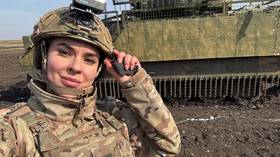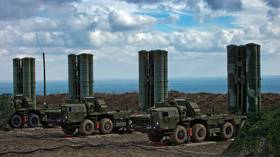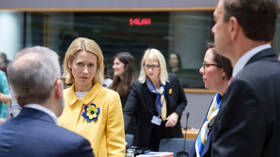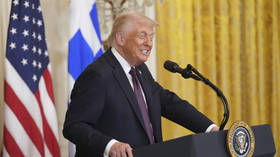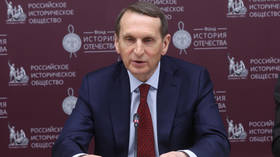Western revanchism and history lessons: Takeaways from Russia’s Victory Day parade
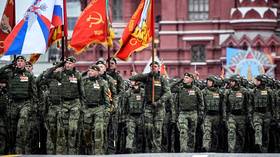
Russia has celebrated the 79th anniversary of victory over Nazi Germany in World War II with a traditional military parade in Moscow’s Red Square involving thousands of troops and dozens of armored vehicles and warplanes. May 9 is considered to be the most revered national holiday in the country.
Here are the key events linked to the solemn occasion.
Only friends in Moscow
Russia did not invite officials or envoys representing “unfriendly” states to watch the parade, although this policy did not apply to veterans’ organizations, according to Foreign Ministry spokeswoman Maria Zakharova.
President Vladimir Putin therefore welcomed several leaders from former Soviet republics, as well as the presidents of Cuba, Guinea-Bissau, and Laos. Other guests included ambassadors and military attaches from friendly countries.
Military parade in May snowfall
Thousands of Russian troops from different branches of the military marched in Red Square as part of the traditional Victory Day parade, the first of which was held in June 1945 following the defeat and unconditional surrender of Nazi Germany in World War II.
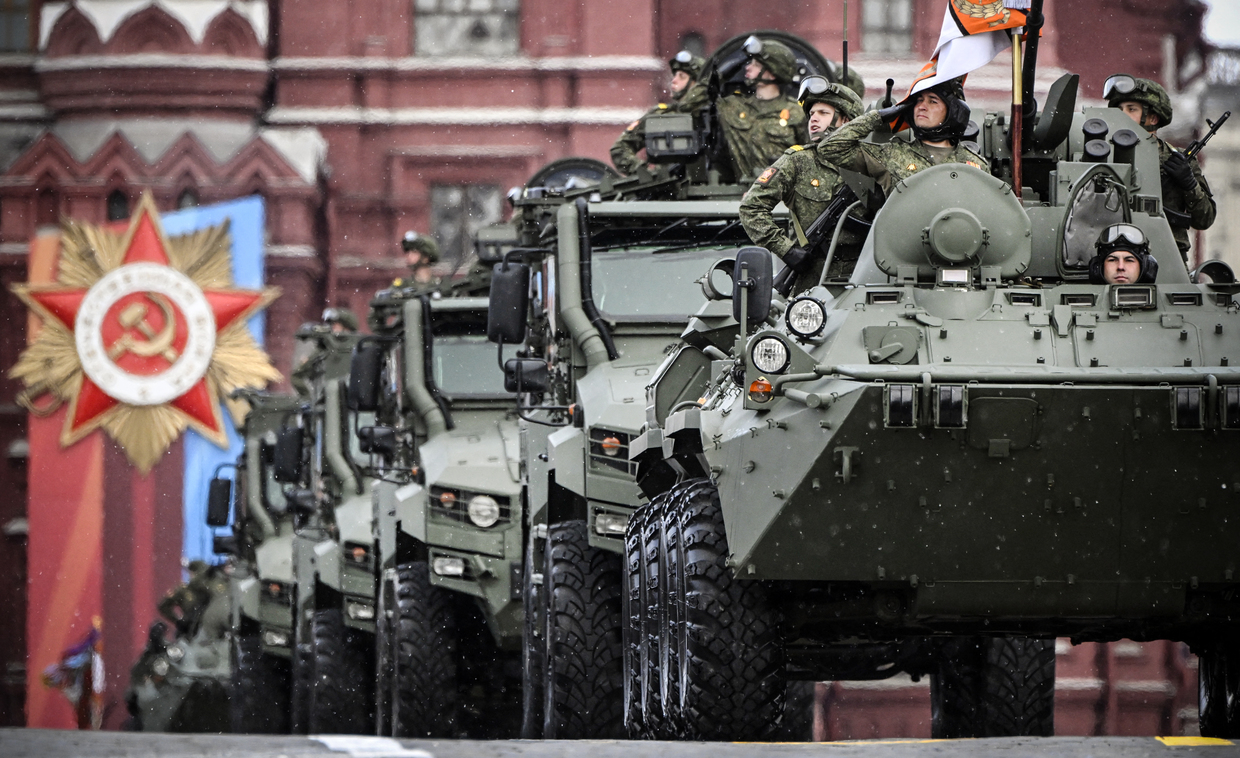
More than 9,000 troops, including veterans of the Ukraine conflict, took part in the event, followed by more than 70 armored vehicles, including an iconic T-34-85, the Red Army warhorse of WWII, as well as S-400 air defense systems and Yars intercontinental ballistic missiles. The parade was capped by a flyby featuring two groups of warplanes.
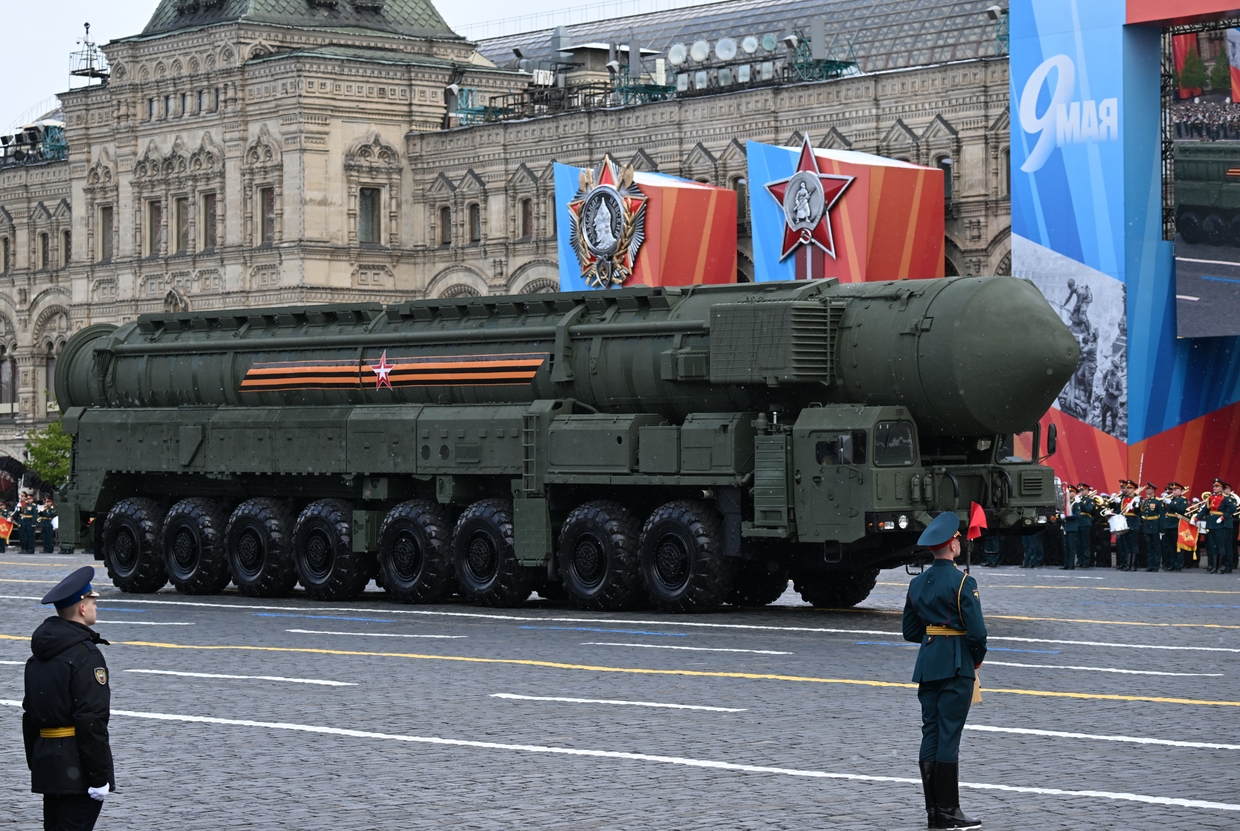
The occasion coincided with an extremely rare spell of cold weather in Moscow Region, with the temperature plunging below freezing, and Russian troops marching in light snow.
Western campaign to exonerate Nazis
In his speech, Russian President Vladimir Putin condemned recurring attempts to “distort the truth” about World War II. In a thinly veiled rebuke of the West, he added that this truth “interferes with those who are accustomed to building their essentially colonial policy on hypocrisy and lies.”
“Revanchism, mockery of history, the desire to exonerate the current followers of the Nazis are part of the general policy of Western elites of inciting more and more regional conflicts, interethnic and interreligious hostility, and restraining the development of sovereign independent states,” Putin said.
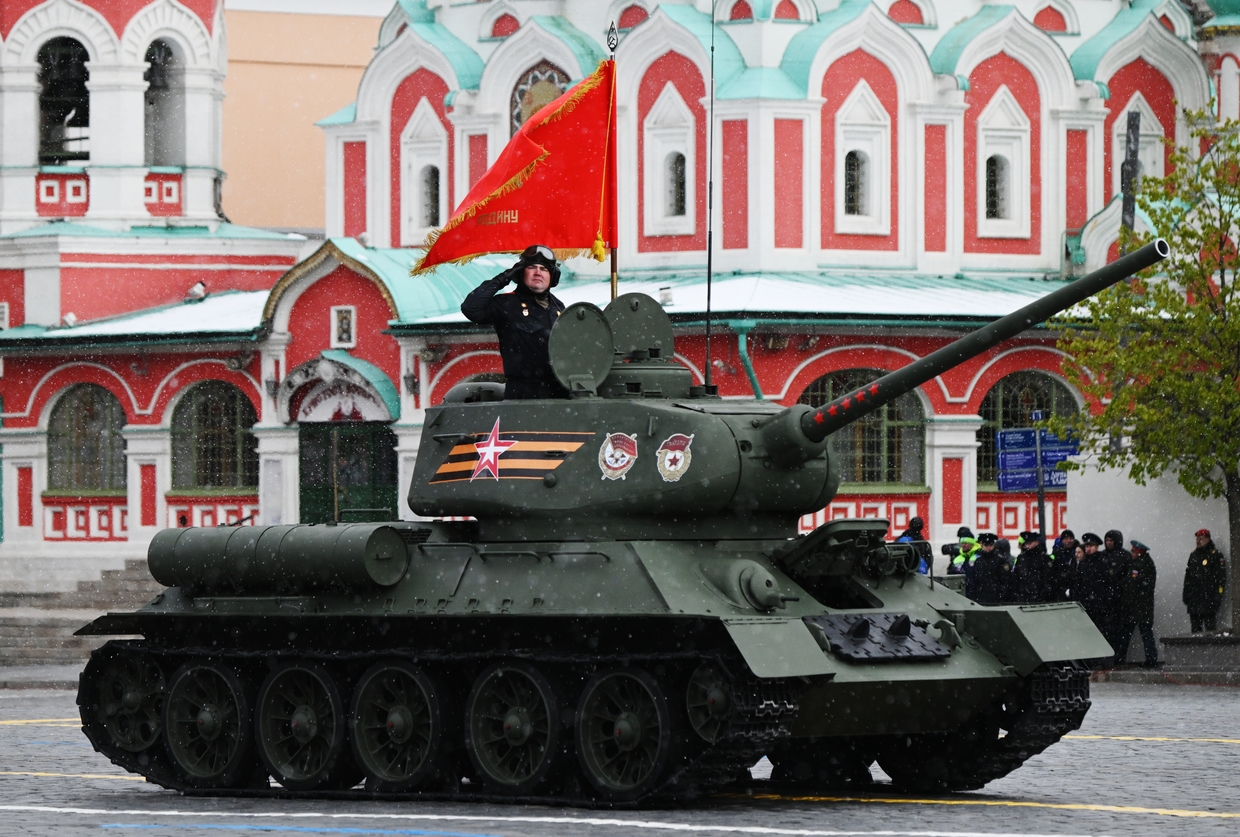
Moscow, the president continued, rejects the claims of any state or alliance to exceptionalism. “Russia will do everything to prevent a global conflict, but at the same time we will not allow anyone to threaten us,” he added.
A history lesson to remember
Putin argued that, while the West “would like to forget the lessons of World War II,” Russia remembers that the “fate of humanity” was decided in a titanic clash between Nazi Germany and the Soviet Union, which stood largely alone in the face of the relentless German onslaught in the first three years of the Great Patriotic War.
Still, he added that “Russia has never downplayed the significance” of the Allied assistance in World War II and their separate fight against the Nazis.
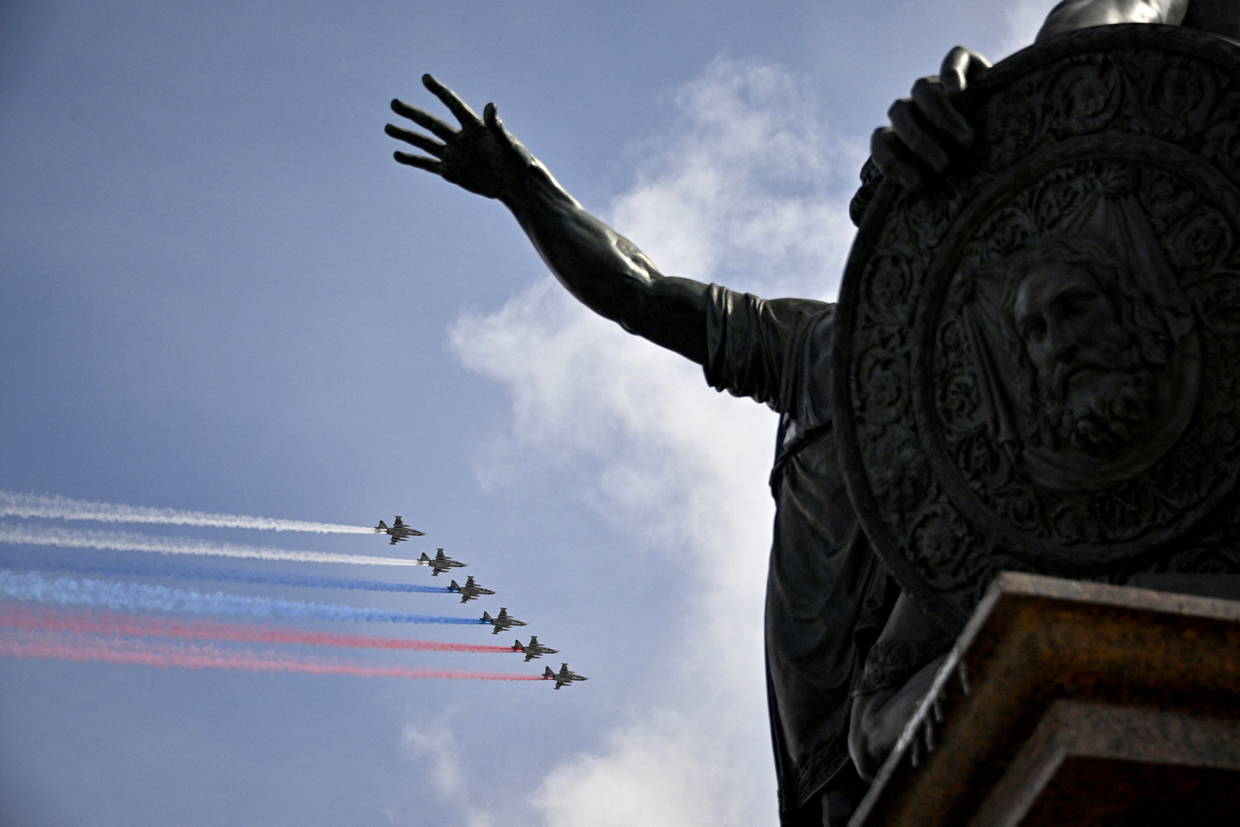
In the middle of his speech, the president also announced a minute of silence to commemorate those who died in the Great Patriotic War against Nazi Germany, as well as those killed in the Ukraine conflict. After the parade, Putin joined several foreign leaders in laying flowers at the Tomb of the Unknown Soldier in the Alexander Garden.



